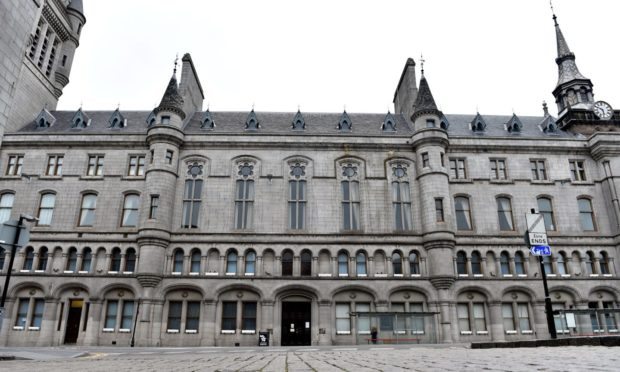Aberdeen solicitors have warned removing the “not proven” verdict will lead to “miscarriages of justice”.
A consultation on scrapping the not proven verdict has been announced as part of SNP justice policies ahead of May’s election.
And First Minister Nicola Sturgeon has also said the controversial not proven verdict – which is unique to Scotland – should be “looked at”.
But defence solicitors in Aberdeen have now spoken out against it potentially being scrapped, warning it could leave to wrongful convictions.
Paul Barnett
Paul Barnett, a partner in George Mathers and Co, said: “The proposal to abolish the not proven verdict sadly comes as no surprise.
“The agenda to increase conviction rates is now being put above basic legal safeguards to prevent an accused person being wrongfully convicted and will inevitably lead to miscarriages of justice for people accused of horrific crimes.”
Gregor Kelly
Meanwhile, Gregor Kelly, a partner with Lefevre Litigation, echoed the concerns.
He said: “I am deeply concerned at Nicola Sturgeon’s change of position in agreeing to reconsider removing the not proven verdict.
“In my view, the “third verdict“ acts as a safeguard against wrongful convictions. I believe that Scottish juries bring to bear their own life experience in reaching verdicts at the conclusion of criminal trials.
“The burden of proof lies with the Crown to prove the case beyond reasonable doubt, not to a mathematical certainty and the not proven verdict is there to prevent the conviction of innocent persons.
“Juries are given detailed legal direction by skilled professional judges and I think that Scottish juries should be given more credit for their ability to distinguish between the respective verdicts.
“We must be cautious before any knee-jerk reaction to abolish a cornerstone of the Scottish legal system is taken.”
Tony Burgess
Solicitor Tony Burgess, of Just Defence, said he’d rather scrap the guilty and not guilty verdicts than the not proven one.
He said: “I’ve always been of the view that there should only be two verdicts – proven and not proven, never mind guilty and not guilty.
“Historically the crown’s task is to prove its case, so it either does or it doesn’t.
“I think that not proven should remain, but if you are going to get rid of a verdict, get rid of guilty and not guilty and replace it with proven, with not proven remaining.
“The only person who knows if they’re guilty is the person who did it, and the person sitting in the dock may not actually be the person who did it, so they’re not guilty.
“The law says they’re guilty, but I think it’s far fairer to say that the Crown has proved that this person did it. It just seems fairer to me.”
Mr Burgess added: “I think the not proven verdict should remain.
“As I say in my jury speech, there are three verdicts open to you, guilty, not guilty, not proven.
“Not guilty and not proven, same outcome, it’s one of acquittal.
“Guilty, I think is the jury saying the person sitting in the dock is the person who did it.
“Not guilty, the jury are saying the person sitting in the dock is not the person who did it.
“Not proven is the jury saying ‘well I can’t say that it is, but I can’t say that it isn’t’, and of course the reasonable doubt must go in the favour of the accused person.
“I think that the not proven verdict leaves it open to the jury to say ‘I’m not satisfied either way’.
“It must be horrible for a juror to sit there and say ‘well I can’t say he’s guilty, but I can’t say he’s not guilty, so what do I do?’.
“The not proven verdict is there for people who are unable to have been persuaded one way or the other. That’s how I see it.”
Humza Yousaf
Justice Secretary Humza Yousaf, who is also standing as a candidate in Glasgow Pollok, confirmed the party would launch a consultation into the verdict, which he said jurors sometimes struggle to understand and victims and their families say causes “significant distress”.
A number of political parties have voiced their opposition to the verdict, making the policy one that looks destined to pass Holyrood, regardless of the parliamentary status.
“In recognition of the strong case that has been made for its abolition, we will consult on the removal of the not proven verdict,” Mr Yousaf said in a speech.
“We will work with all parties and with relevant stakeholders to take forward reform of Scotland’s justice system.
“The SNP Government is on your side and on the side of our communities.
“We will use all of our experience to do whatever we can to keep Scotland safe and continue to cut crime and help victims.”
Under SNP plans, a victims’ commissioner will also be created to “challenge” the Scottish Government and legal authorities on behalf of victims.
